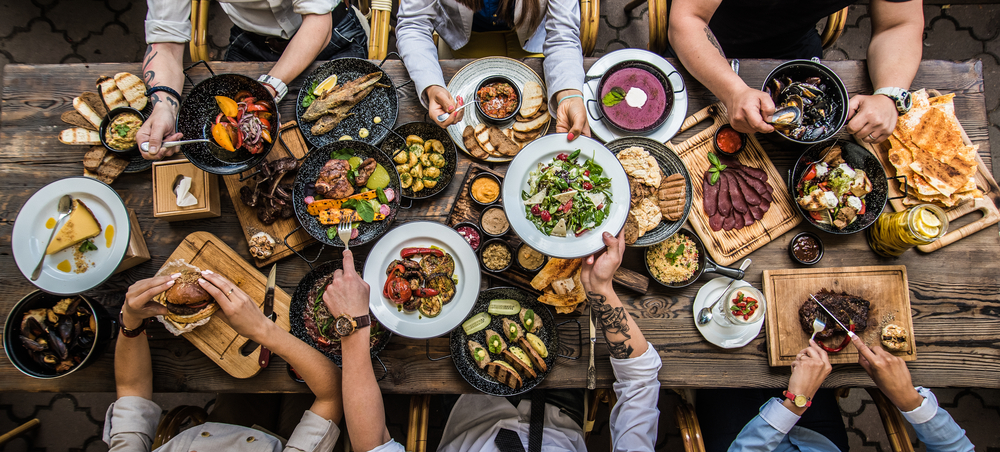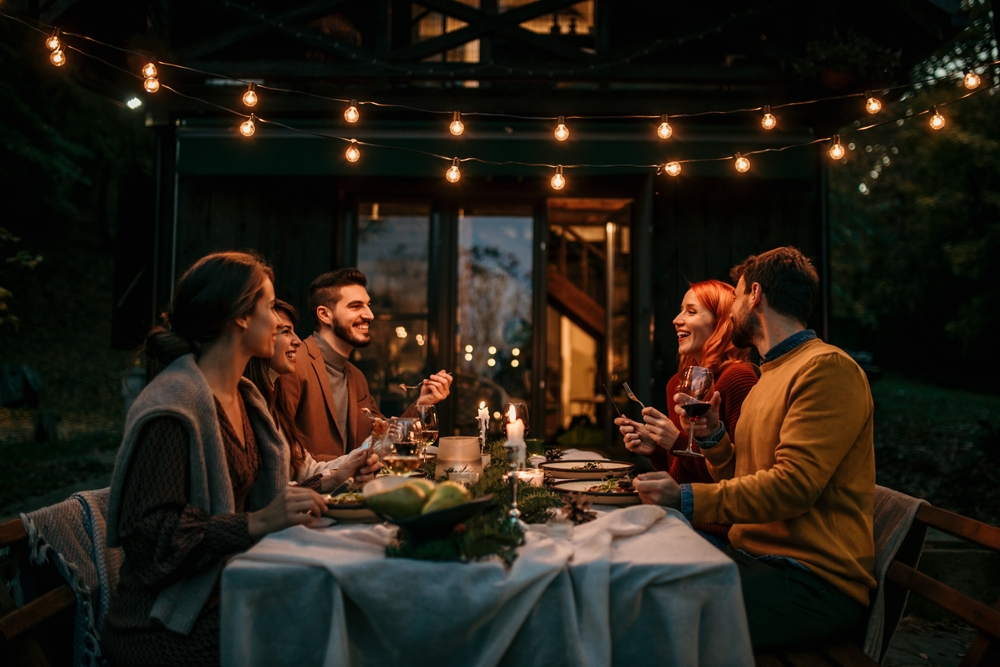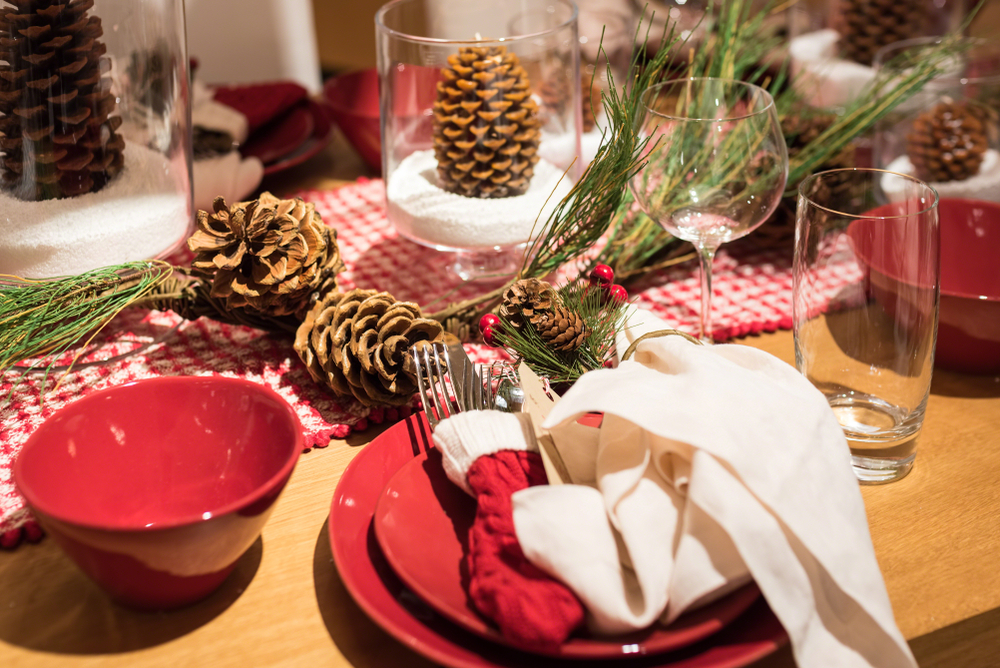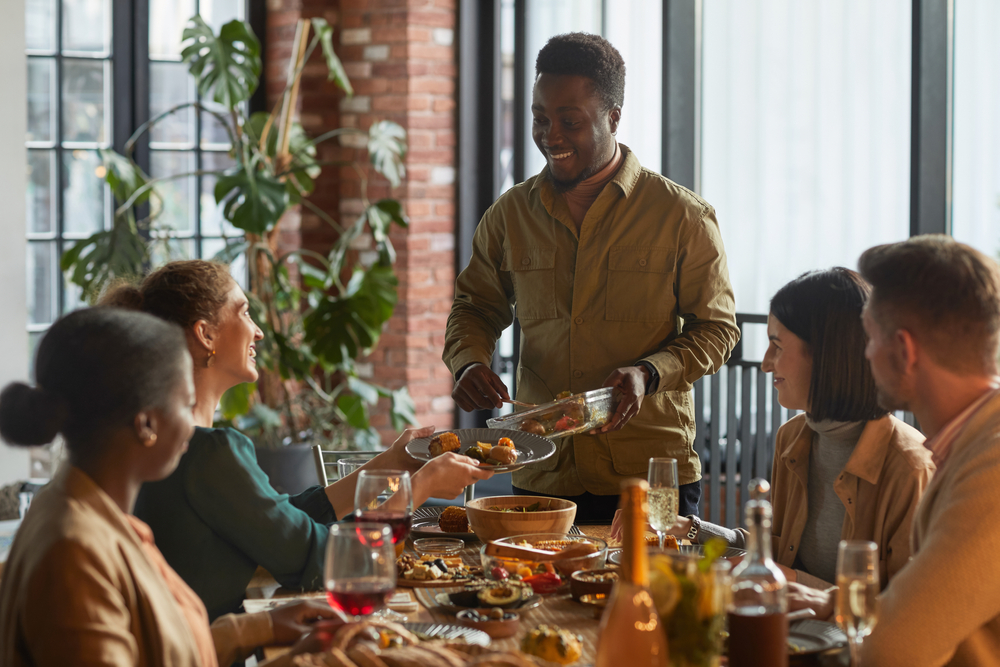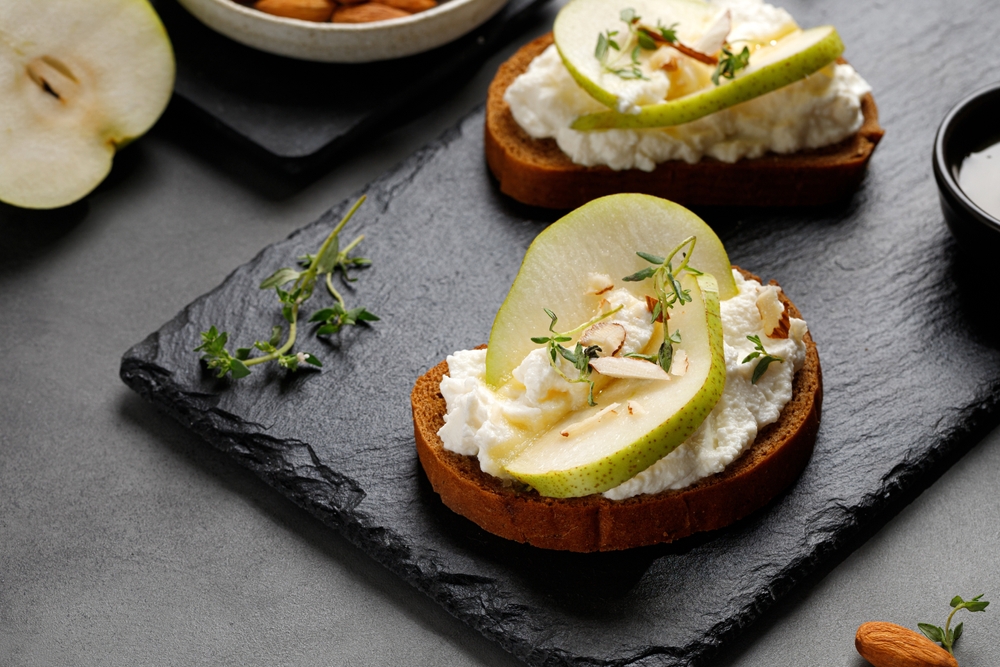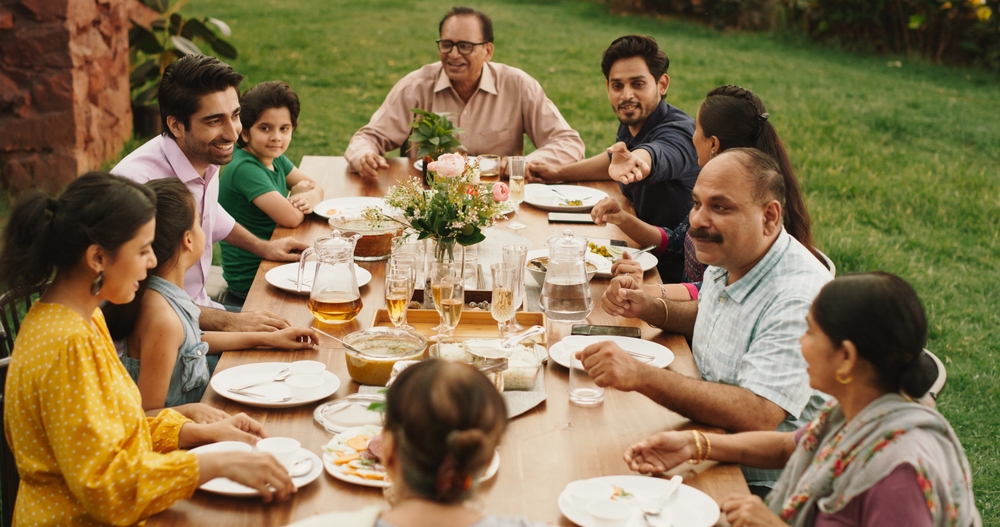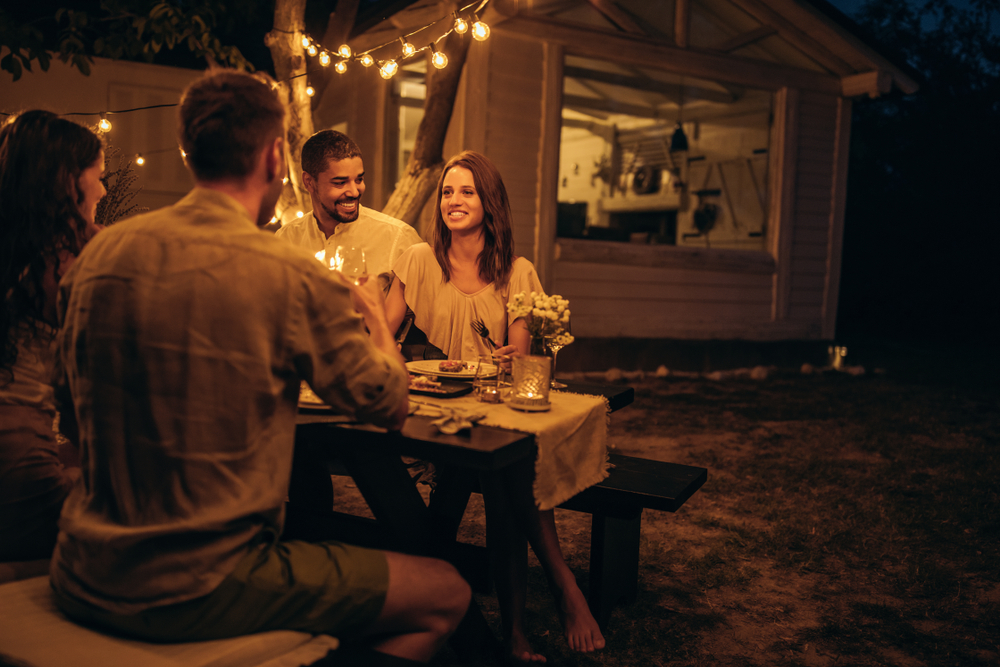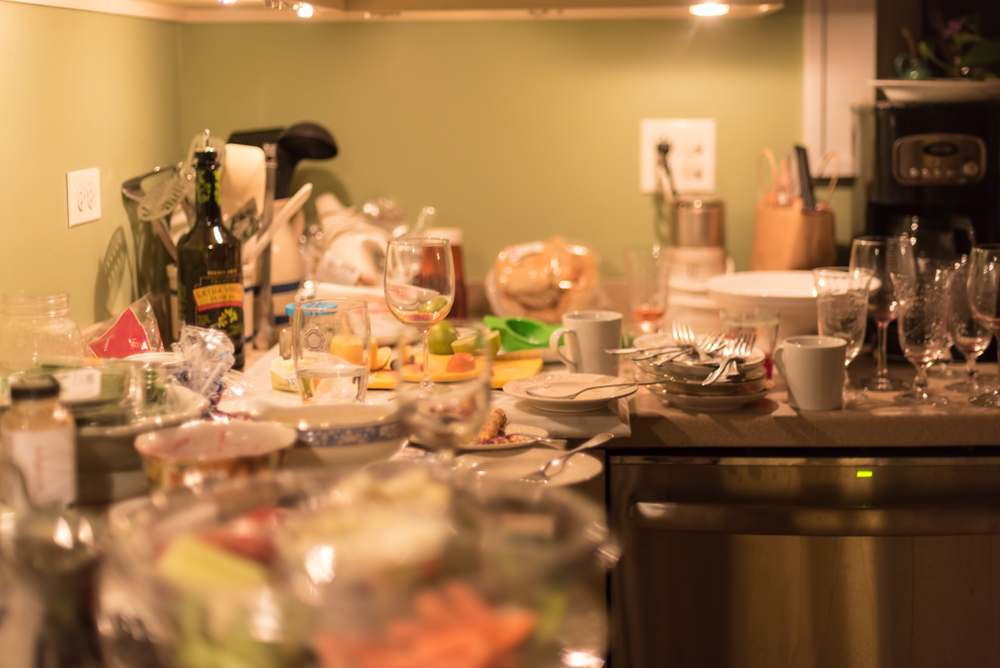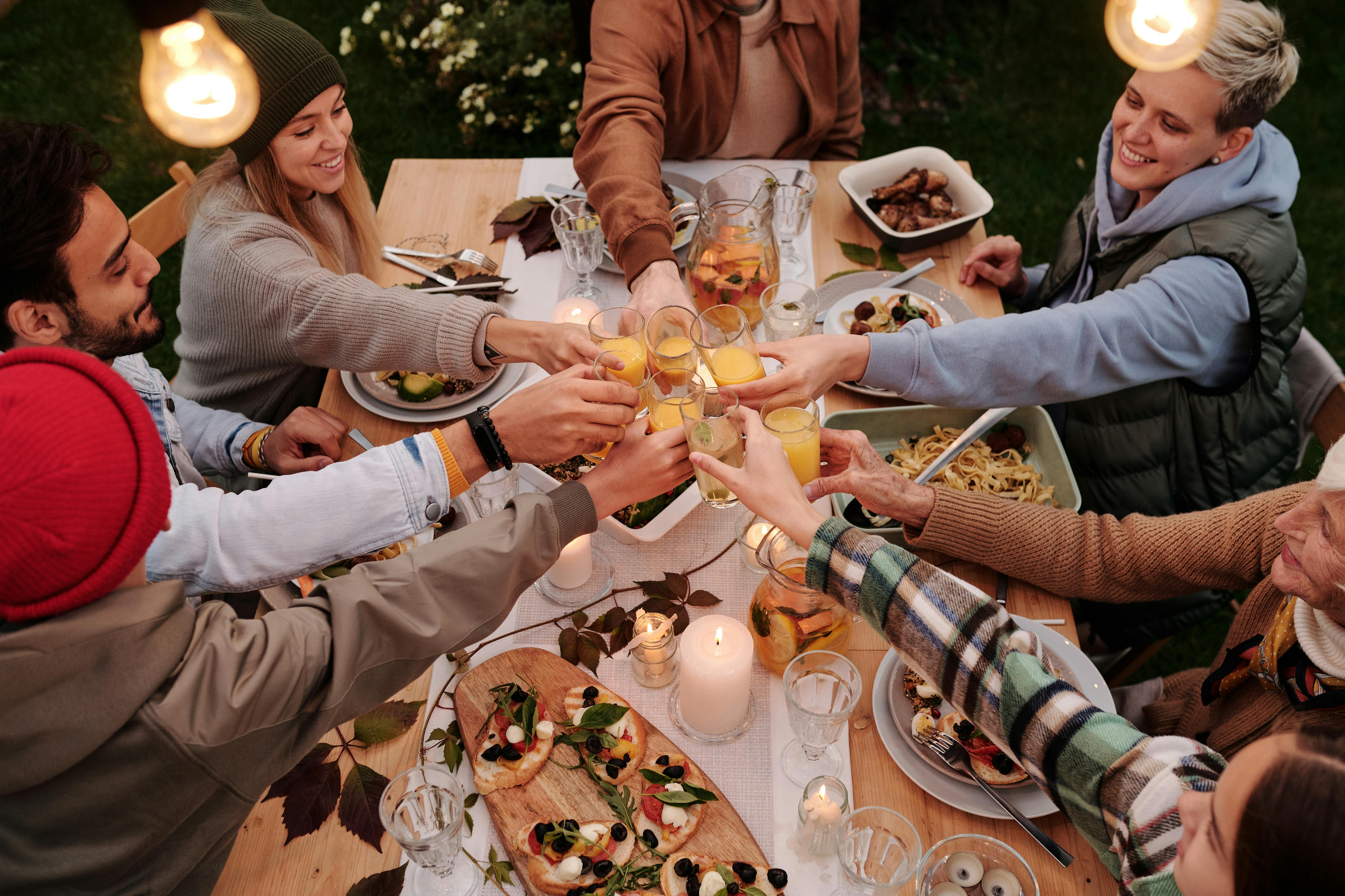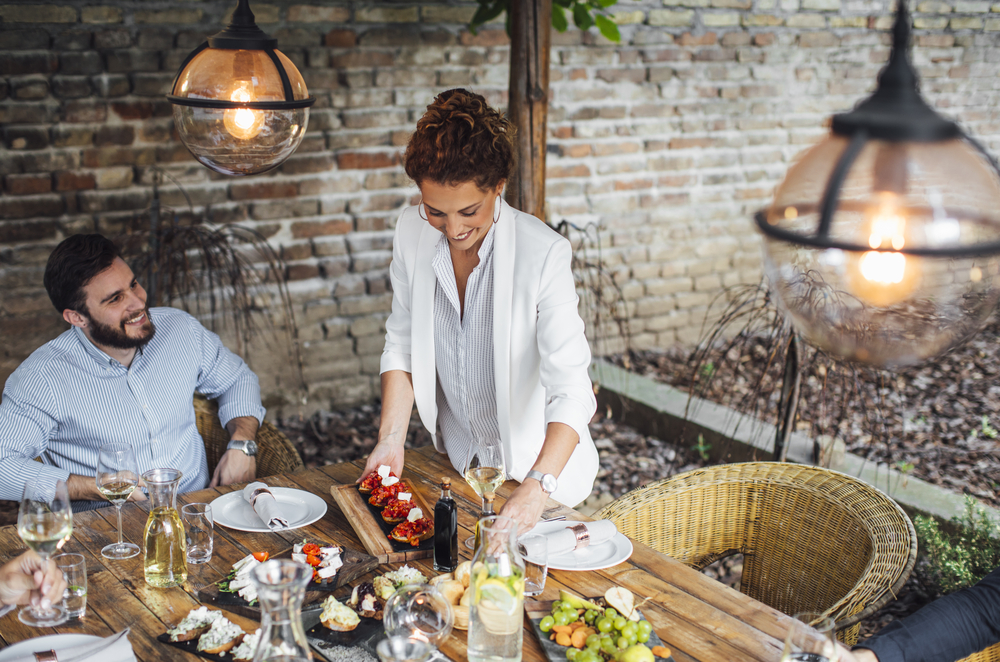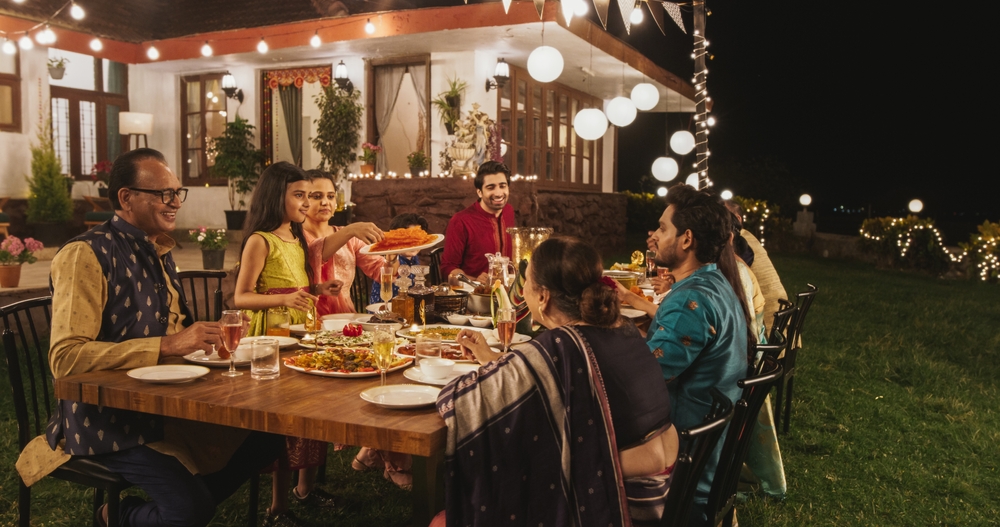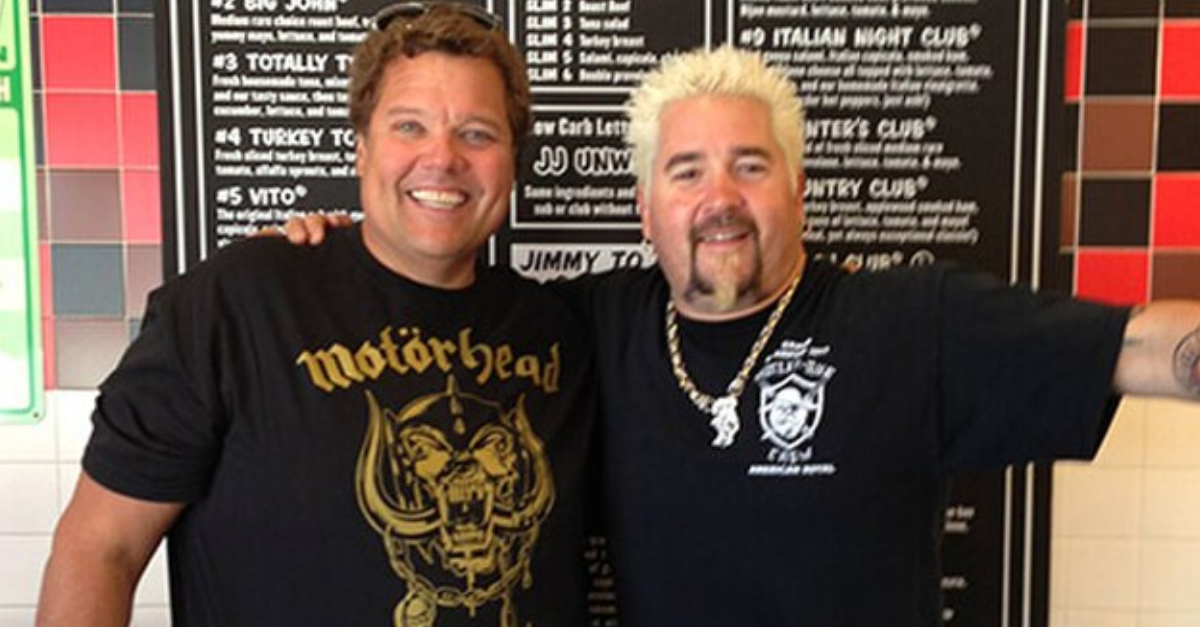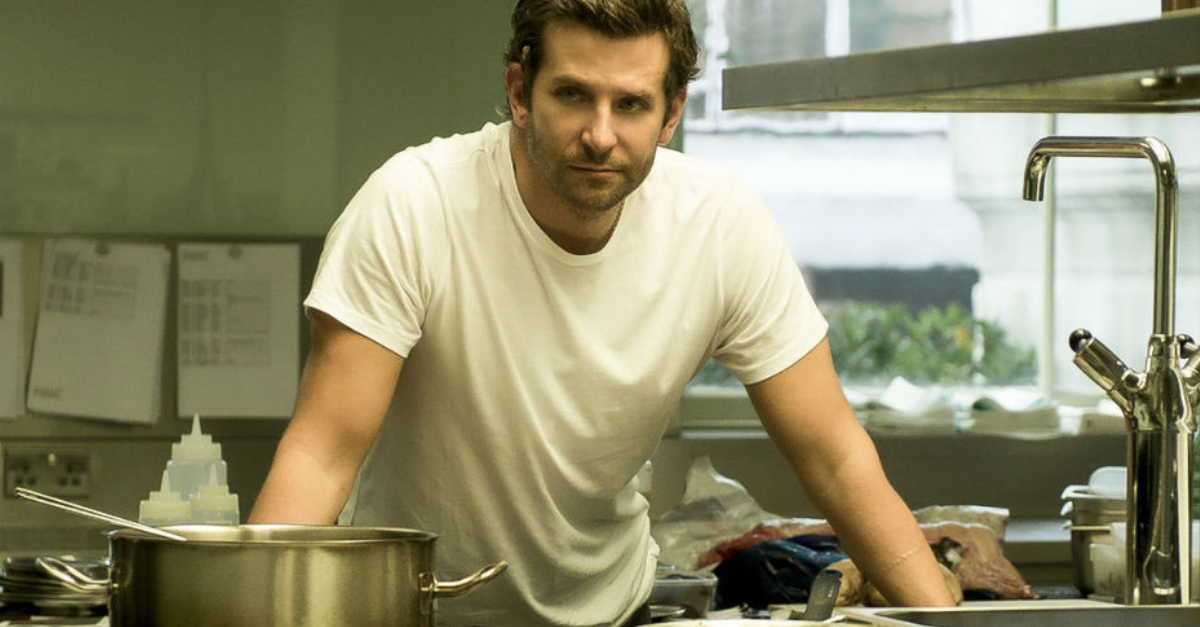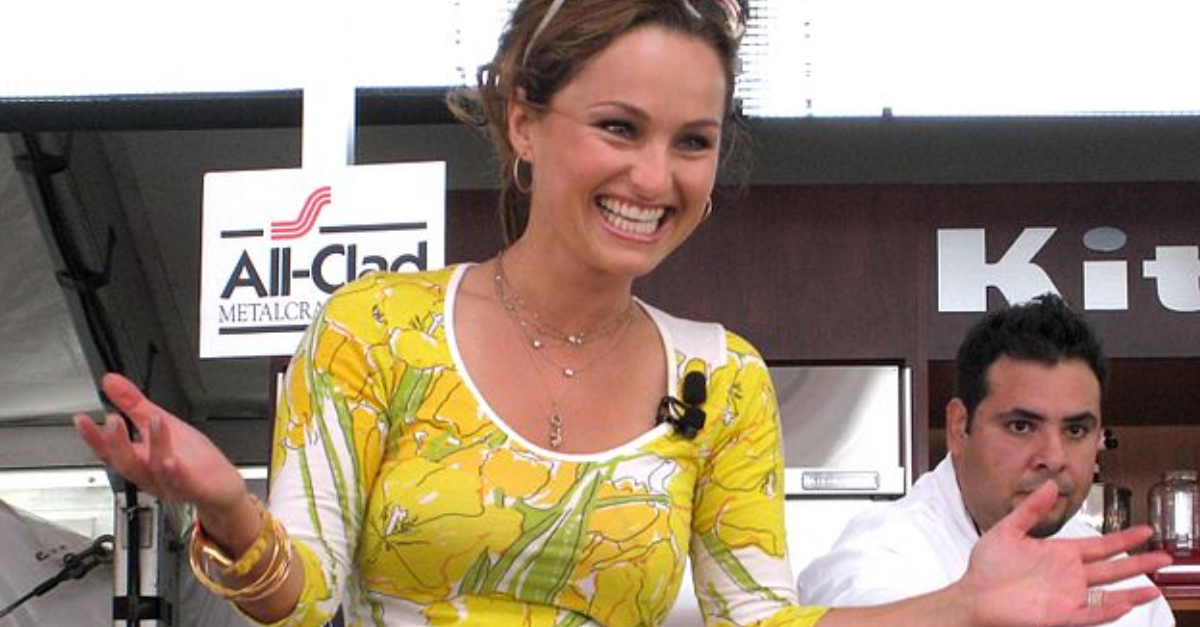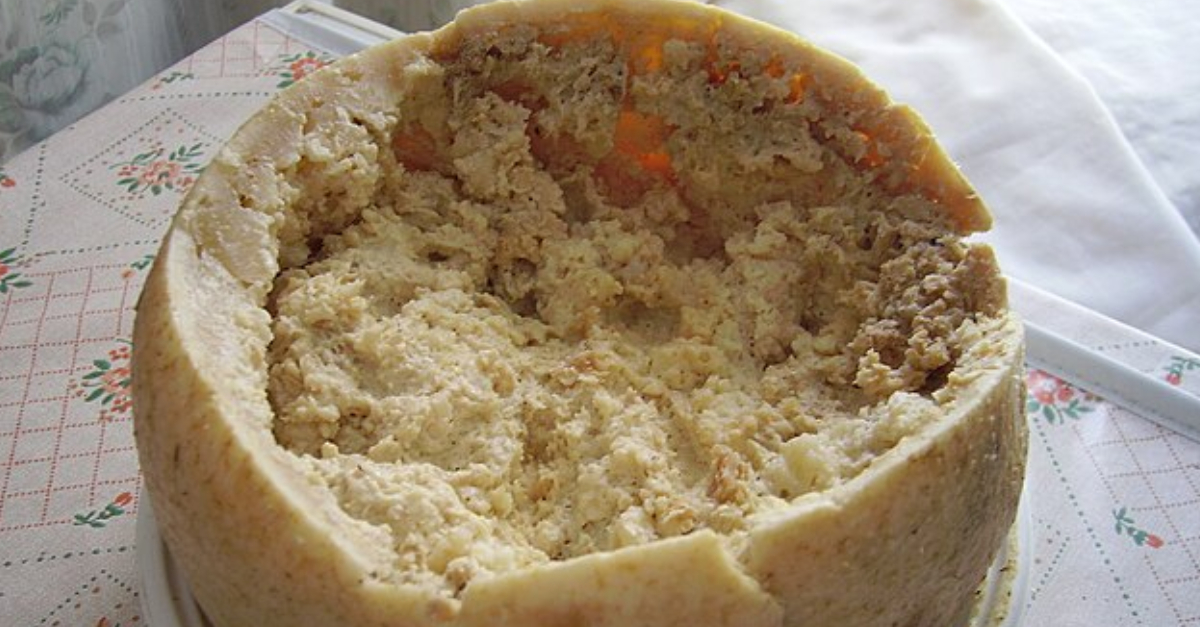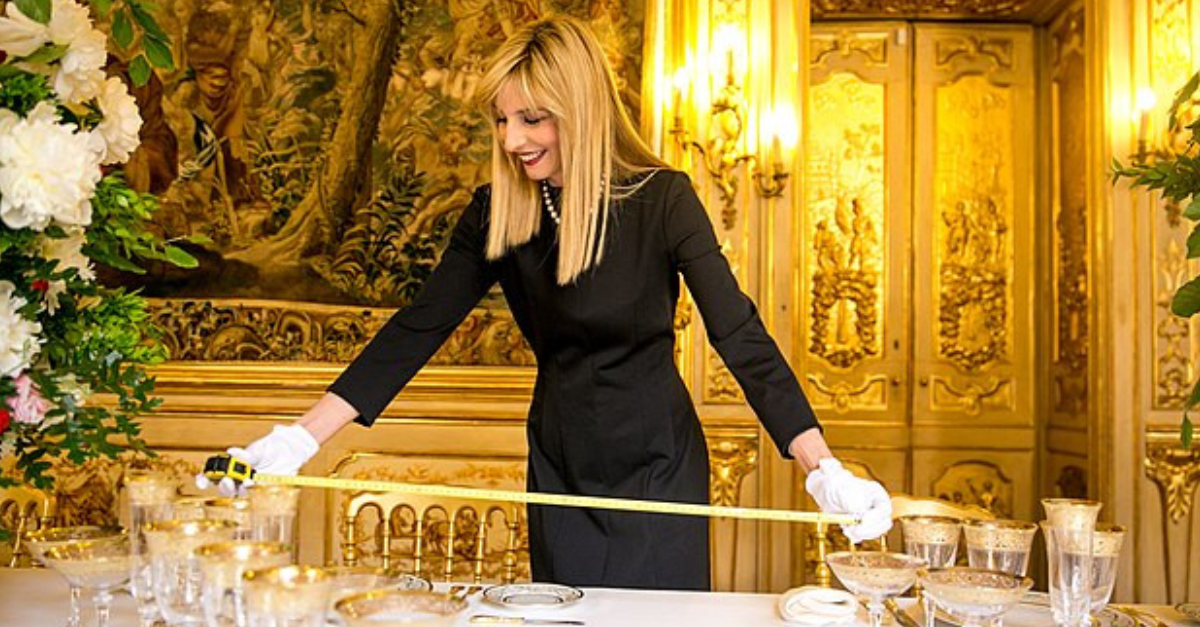Get This Party Started
Some say that the dinner party is a lost art, but we disagree. Though they might not be as stuffy, involved, or as formal as the ones our parents threw, the modern dinner party can be one of the most fun events to host—but there are still some dos and don’ts that far too many people have forgotten.
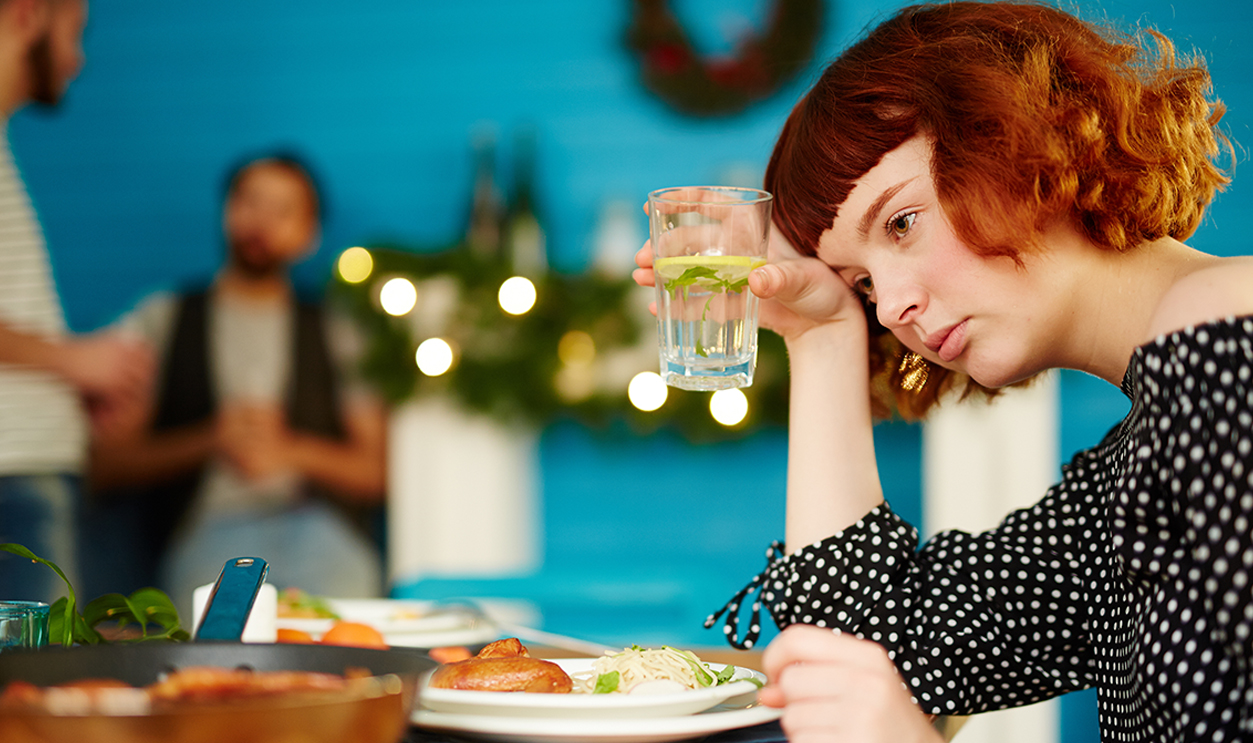
Do: Be Upfront About The Vibe
Are you making a huge spread for people to pick at? A sit-down dinner with multiple courses? Making a big salad, uncorking some great wine, and ordering a few pizzas? Let people know what they’re in for when you invite them.
Do: Be Upfront About The Vibe
Letting people know what kind of evening they’re in for will help them plan around it. Parents who might need a babysitter or social butterflies who plan multiple events in one night will appreciate knowing if it’s the kind of event where they’re sitting for 3-4 hours vs one where they can stay for a few drinks and bites and sneak out without killing the vibe.
Don’t: Put Too Much Pressure On Yourself
Some of us (not saying who) (definitely not me) use the pressure of having people over to drive themselves to do a deep clean—but it’s far too easy to lose precious hours of prep time. Yeah, deep clean the bathroom, sweep the floors, and tidy up…but then close the bedroom doors, and don’t even think of starting to deep clean the kitchen you’ll inevitably mess up when you start cooking.
Don’t: Use An Evite Service
Once upon a time, using an online email invitation service was the thing to do. Now, most services are so clogged with ads that it’s impossible to get to the information you need, especially if someone is looking for the address on their phone while they’re already on the way.
Do: DIY Your Invite
Most email providers have enough tools at their disposal that you can really whip up something simple and nice with just a couple of different fonts, colors, and bolding. Or, if you have the graphic design skills, design a sweet little JPG file to attach to the email. Have fun with it!
 Roman Samborskyi, Shutterstock
Roman Samborskyi, Shutterstock
Don’t: BCC
Imagine this: You get an email invite for a dinner party from a friend, but it looks like the invite is just addressed to you. Is this a dinner party or the beginning of a murder mystery?
Do: Be Open About The Guest List
It used to be considered rude to ask who else is invited to a party. In fact, it’s probably still considered rude. But you, as a host, have an opportunity to circumvent that old-fashioned rule if you choose to, by showing who’s invited in an email chain, text thread, or by simply saying, “I’ve also invited this person, this person, and this person,” when you speak to one of the guests.
After all, it’s a dinner, not a surprise party.
Don’t: Trust The RSVPs
Things pop up at the last second. Sickness, family emergencies, missing babysitters—it happens. When it comes to the guestlist, expect the unexpected.
Do: Be Flexible With Guests
Some guests may be more comfortable with last minute interruptions—from lateness to bringing an uninvited guest of their own—than others. Try to be gracious, even if it adds extra stress.
Don’t: Stuff The Space
Be realistic about the amount of space you have. Will the dinner party really be that fun for everyone if two people have to sit on patio chairs you’ve dragged indoors and two have to make conversation from the couch in the other room? Invite according to the space you have.
Do: Invite Who You Want To See
When making your guestlist, it’s easy to jump from A to B to C—as in, if I invite A, I have to invite B, and if I invite B, I have to invite C. You can’t please everyone. Invite people you actually want to see. If there are too many people, you can always split the list and have another dinner down the line.
Don’t: Hide The Plan
It’s important to be clear about what you’re planning to serve beforehand so people can let you know about any food allergies, etc. In fact, it’s worthwhile to just ask in advance to make sure that everyone can enjoy the food you prepare.
 Srdjan Randjelovic, Shutterstock
Srdjan Randjelovic, Shutterstock
Do: Be Clear About The Menu
No one expects a host to go above and beyond to conform to the food preferences of a whole dinner party’ worth of guests—but when people know what they’re getting into, they can plan accordingly, or let you know about any concerns.
 Monkey Business Images, Shutterstock
Monkey Business Images, Shutterstock
Don’t: Go Overboard
It’s easy to get swept up in the excitement of throwing a dinner party and going overboard with the food, wine, and even décor. The crazy thing? It’s really not necessary.
Do: Be Smart About Spending
You don’t need to buy the best of everything from the fanciest grocery store in town. People are there for a good bite and a good drink, not a Michelin-starred tasting menu. Most important of all, they’re there for your company—and that’s free.
Don’t: Serve Appetizers
I know, it sounds shocking—but hear me out. If you’re having a sit down dinner, it’s not necessary, adds so much extra work, and worst of all…might just fill everyone up before dinner!
Do: Smaller Than Small Bites
Many of us—not naming names—are exactly the type of person who will inadvertently eat 7 slices of bruschetta before dinner, and then be so full afterward they can’t enjoy themselves. Instead, put out a couple of bowls of olives and nuts for people to enjoy with their first drink, and plan to serve dinner about half an hour after the last guest arrives.
If that’s not Martha Stewart enough for you, simmer the olives in olive oil and citrus zest before serving, and roast the nuts with rosemary.
Don’t: Attempt to Do It All Yourself
If you’re not adept at baking, there’s no reason you should be slaving away in the kitchen attempting to make a chocolate soufflé. If there are certain things about your cooking you consider to be weak spots, you’re not going to solve them all in one dinner party.
 Nicoleta Ionescu, Shutterstock
Nicoleta Ionescu, Shutterstock
Do: Be Realistic About Your Skills And Timing
Work with what you’ve got—and outsource the rest. While you may want to put your best foot forward by attempting to do everything yourself, there’s truly no shame in hitting your local bakery for dessert if it’s not in your wheelhouse.
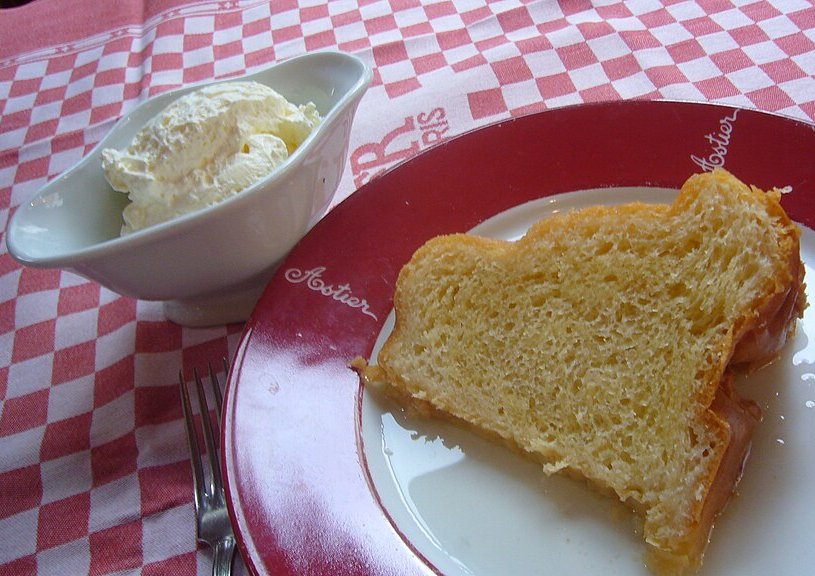 Kent Wang, CC BY-SA 2.0, Wikimedia Commons
Kent Wang, CC BY-SA 2.0, Wikimedia Commons
Don’t: Leave Your Guests Out Of It
Not every guest is going to offer to contribute, but some will inevitably be chomping at the bit to help out—the type who hates to show up empty-handed. Indulge them if you can.
Do: Delegate Responsibly
It’s not a potluck—don’t let it turn into one. When faced with enthusiastic guests, certain tasks can be handed off, but don’t let them volunteer for anything too involved—basically, nothing that requires cooking or reheating on site. Safe requests? A bottle of wine, a dessert, or even a carton of ice cream to go with said dessert.
 Dejan Dundjerski, Shutterstock
Dejan Dundjerski, Shutterstock
Don’t: Be Overly Concerned With Formal Place Settings
It’s 2024. No one is expecting a separate silverware service for each course. It’s easy to belabor the so-called “tablescape” and go overboard with extras—but seriously, no one expects to see a charger under a plate unless they’re at a wedding.
Do: Make Sure You Have The Right Equipment
Beyond the basic place settings, make sure you have the appropriate equipment for whatever you’re serving. While the era of fish knives may be long gone, specialized utensils like seafood forks and non-metallic caviar spoons can make all the difference if you’re going a fancier route.
Don’t: Feel Obligated To Open Every Bottle
One of the most common host gifts is a bottle of wine—but many people remain confused about the question of whether or not that wine is meant as a gift to be drunk another time, or meant to be consumed at the party.
Do: Open It If It Works Or Is Needed
If you have wine pairings planned, or more than enough drinks to go with the meal you’ve planned, you, as the host, are under no obligation to open the wine a guest gives you as a gift. But, if your guest happens to mention that they’ve never tried the wine, or are curious about it, even if they’re not trying to drop a hint…what does it hurt to pop it open and make sure everyone gets to taste it?
Don’t: Make Things Awkward
Everyone knows the rules about conversation at dinner parties, right? Don’t discuss intimacy or politics. Well…you’d be surprised. These things tend to come up, and not everyone is as conscientious of polite conversation topics as the next. Prepare to gracefully change the subject if you sense anyone is getting uncomfortable.
Do: Have A Few Backups In Mind
If the conversation hits a lull, there are a lot of ways to pick it back up—from discussing summer travel plans to books you’ve recently read to TV shows you liked. If all else fails, consider having an easy-to-learn party game handy for after dinner, like Heads Up, Things, or Anomia. It’ll get the energy back up
 Daxiao Productions, Shutterstock
Daxiao Productions, Shutterstock
Don’t: Do It All Yourself
It can be tempting to attempt to appear like a perfect Martha Stewart clone and do everything yourself, including clean-up. But if your guests offer to help, don’t be afraid to say yes! You might regret it when you’re still washing dishes at 2 in the morning.
Do: Let Guests Help—To A Point
If someone offers to help clean up after dinner, you can accept their help—but there are limits. Cleaning the table and loading the dishwasher? Great. Tackling the inch of oil and crud in your cast iron pan? That’s a bit much.
 Roman Samborskyi, Shutterstock
Roman Samborskyi, Shutterstock
The Exception?
As we just mentioned, don’t let guests go overboard with their requests to help bring food—with one exception. If they have a very limited diet or many restrictions—whatever the reason—and they offer to bring their own food, let them. It’s likely not easy for them to go out on a limb like that, and their willingness to participate despite their dietary restrictions is a sign that they truly want to be there.
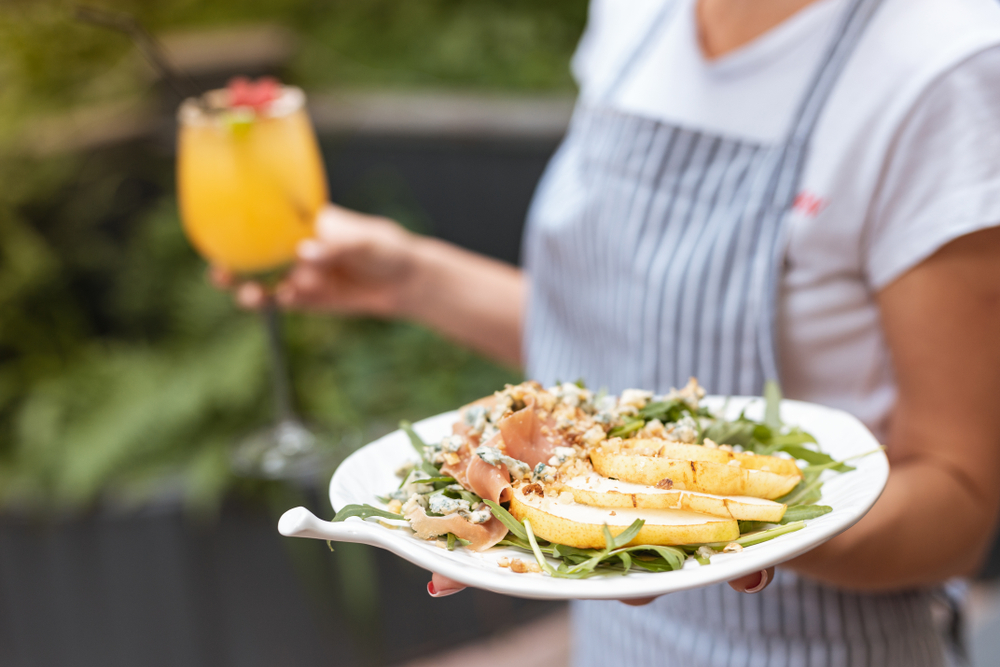 YAKOBCHUK VIACHESLAV, Shutterstock
YAKOBCHUK VIACHESLAV, Shutterstock
Don’t: Overstuff Them
No one wants their dinner party guests to walk away hungry, so it’s tempting to overbuy your ingredients to make much larger portions than you need to, “just in case”. But realistically, if you’re making a bunch of stuff, people will only manage a few bites of each dish. No one wants a fridge full of leftovers and extra ingredients that go to waste.
 Monkey Business Images, Shutterstock
Monkey Business Images, Shutterstock
Do: Send Them Home With Leftovers
Even the most portion-conscious hosts can end up with leftovers. If you don’t think you’ll get through them, it’s not déclassé to offer them up to your guests. That one friend who never has time to make a lunch for work may appreciate it.
Don’t: Overserve
With the way things cost today, few people can afford regularly going to dinner and ordering an aperitif, wine, digestif, and coffee on top of their actual meal—so it’s tempting to offer that experience at a dinner party, where the price point is so much lower. But not everyone drinks—and not everyone handles their liquor as well as the next person.
Do: Offer Alternatives
There’s no shame in wanting your friends to enjoy themselves, but make sure that there’s plenty of water on the table, and perhaps plan to offer a mocktail option for anyone who doesn’t, or can’t drink.
Don’t: Get Stuck On The Idea Of A Formal Dinner
The phrase “dinner party” often evokes a sit-down dinner with multiple courses, but it doesn’t have to be that way. It can be an opportunity to finally make a giant order from that new sushi place in town and try a bit of everything—or to branch out in unexpected directions.
Do: Make It An Experience
If you’re looking for a different experience and have the means to do so, there are so many ways to “elevate,” if you will, the regular dinner party experience. Make it a theme, plan a matching menu, and ask people to dress accordingly. Or hire a private chef for one night. Or use it as an excuse to get that one weird piece of kitchen equipment you’ve always wanted…slushy margarita from a frozen drink maker, anyone?
Don’t: Fix It If It’s Not Broken
If you want to have another dinner party, it’s not necessary to make an entirely new menu each time. That’s a whole lot of time and energy when you may already have a great formula going.
Do: Go With What Works
If there’s something your guests rant and rave about—well, that’s your new signature dish. It’s not likely that you’re having the same people over for dinner weekly or even monthly, so don’t be afraid to repeat things if they work. If a dish is a crowd-pleaser and easy enough to make that it leaves you time to enjoy yourself, then by all means, make it again.
 Daxiao Productions, Shutterstock
Daxiao Productions, Shutterstock
Don’t: Take It Personally
You could pull off the greatest dinner party in history, and it’s still entirely possible that someone might show up empty-handed, forget to thank you on the way out, or doesn’t compliment your homemade dessert. There’s a 99.9% chance things like this aren’t slights—they’re simply evidence that people were too busy enjoying themselves to dwell on the formalities.
Do: Enjoy Yourself
When all is said and done, you don’t want your entire memory of the event to be you, preparing food alone in the kitchen. As mentioned earlier, your guests are there to spend time with you, so don’t get too caught up in making things perfect.


